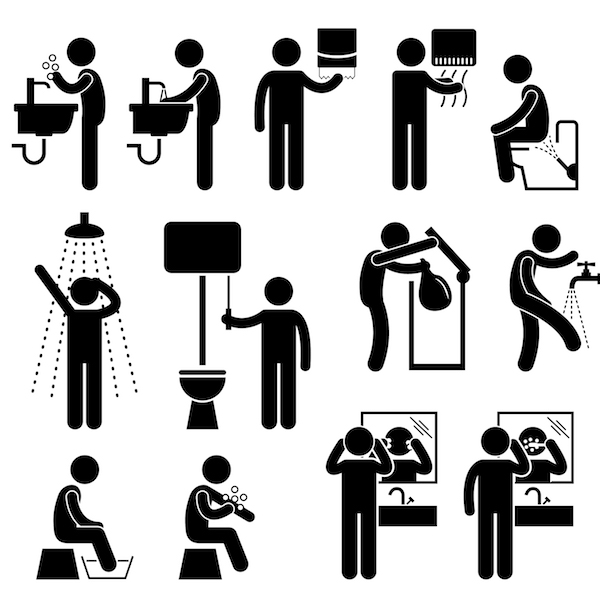Personal Hygiene And Older Americans

As people age, cleanliness and hygiene sometimes takes a back seat.! The incidence of older Americans not wanting to bathe, or wear clean clothes as they continue to age is a lot higher than most people want to believe.
The reason for this slip in appearance takes the form of varying insecurities and mental maladies. The first being depression. Depression often manifests itself in a lack of concern for one’s own well-being, and the desire to maintain appearances dissipates. If you believe your loved one may be showing signs of depression it is a good idea to schedule a checkup with their doctor.
Another reason your loved one may not be bathing could simply be the fact that their olfactory organs just aren’t what they used to be. They may be completely oblivious to the way they smell, and as their eyesight continues to wane, they may also not be as aware of their appearance. As bodily functions continue to fade, so does memory, a contributing third factor. Since most elderly individuals do not have schedules brimming with activities, oftentimes the days begin to blend together, and they forget when they last showered and what they last wore.
It’s also possible that they are attempting to reassert control over their lives by not bathing. As they continue to age it is common to feel a loss of control and independence and so they try to reassert this control by avoiding hygiene. The more they are told to shower and change their clothes, the more they strive to resist it. They do not want to be told what to do and know they have control over showering and getting dressed in the morning.
Beyond asserting control, some older adults are simply afraid of bathing. The fear of falling in the tub and injuring themselves is reason enough to avoid the water. Equipping the older adults in your life with a medical alert device from LifeFone could help eliminate their fear of falls and/or injuries in the bathroom, along with other parts of their home. With one touch of a button, emergency care would be on the way.
While there are numerous reasons to avoid bathing, there is something that can be done about it. The key lies mainly in compromise. Oftentimes when loved ones need help bathing they are far too embarrassed or proud to ask for help. They would feel uncomfortable having a family member see them in that vulnerable of a position and don’t want to appear weak by asking for help. A good compromise is hiring an outside third party to come in and administer bath time. A key factor in choosing an in-home care agency is making sure that they are consistent in the staff they send. Bathing is one of the most intimate acts of a person’s day and adding a stranger into the equation definitely makes the experience uncomfortable. By making sure the same person is going to be administering bath time every week, your loved one will begin to feel more at ease.
Another approach is simply diagnosing the problem. If their unwillingness to maintain appearances lies in their depression then having their doctor prescribe antidepressants may solve the problem. Similarly, finding ways to spice up their week may also rejuvenate their desire to look good. By scheduling meals or activities with their friends they may feel excited to look good in front of others. Investing in a shower chair may also alleviate some of the fear associated with bathing and a hand held shower head will give them more control of the situation.
Finding ways to make showering and bathing easier lies in discovering what is keeping your loved one from doing so. Another thing to consider is that as your loved one ages it becomes impractical for them to shower every day and as such, we need to accept that their hygiene will not be as good as it used to be and try to simply aid in keeping our loved ones healthy.
FREE BROCHURE Today!
